Search
Remove Ads
Advertisement
Summary 
Loading AI-generated summary based on World History Encyclopedia articles ...
Search Results
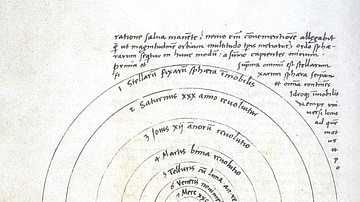
Image
The Heliocentric Universe by Copernicus
A 1520-41 CE illustration of the heliocentric view of our solar system from 'De Revolutionibus Orbium Coelestium' by Nicolaus Copernicus (1473-1543 CE). Copernicus was a Polish astronomer who famously proposed that the Earth and other planets...
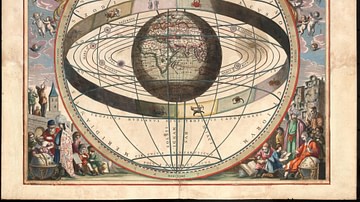
Image
Ptolemaic Universe
A 17th-century map by Jan van Loon of the cosmos as proposed by the astronomer and geographer Claudius Ptolemy (c. 100 - c. 170 CE).
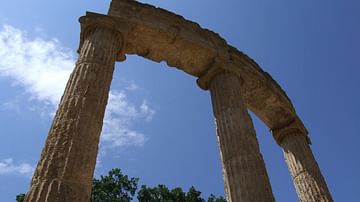
Image
The Curvature of the Universe (Philippeion in the Altis of Olympia)
The Philippeion in the Altis of Olympia was designed by the Athenian sculptor Leochares to celebrate Philip of Macedon's victory at the Battle of Chaeronea (338 BCE).
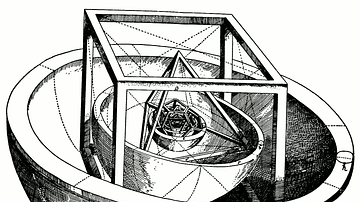
Image
Kepler's Platonic Solid Universe Model
A diagram showing the idea of Johannes Kepler (1571-1630) that the planets of the universe were made up of Platonic solids set within each other. From Kepler's Mysterium Cosmographicum (1596)
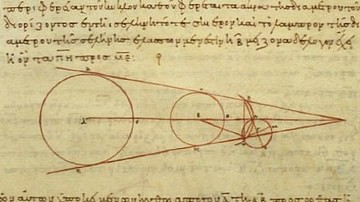
Definition
Aristarchus of Samos
Aristarchus of Samos (l. c. 310 - c. 230 BCE) was a Greek astronomer who first proposed a heliocentric model of the universe in which the sun, not the earth, was at the center. Although his theory was noted by other thinkers of his time...

Video
Understanding Money in Colonial America
Michael Goudket, the Adjutant General of the Order of the Ancient & Honorable Huntington Militia, explains currency used in 18th Century Colonial America. To better understand daily life and material culture in Colonial America, one must...

Video
True understanding of law of karma
The topic in this clip can be further explored on twitter by subscribing to Twitter Humanism1893 https://twitter.com/search?q=humanism1893&src=typd This account is called Humanism1893 because it reflects Humanism that came on world...

Lesson Pack
Shinto: An Introduction
Discover Shinto through its beliefs, values and rituals with 25 pages of lesson plan, activities, homework and assignments, keys and marking grids. All you need to teach on that subject: included and ready to print in this resource! Objectives...

Definition
Philolaus
Philolaus (l. c. 470 to c. 385 BCE) was a Pythagorean philosopher who claimed that fire was the first cause of existence and heat the underlying source of human life. He is best known for his pyrocentric model of the universe, which replaced...
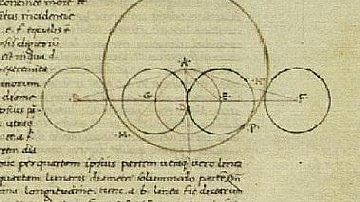
Definition
Greek Astronomy
Ancient Greek astronomy was the study of the universe to understand how it functioned and why apart from the established theistic model that claimed all things were ordered and maintained by the gods. Ancient Greek astronomers relied on observation...